City of Austin plans to turn Candlewood Suites Hotel into housing for homeless, residents fear conversion
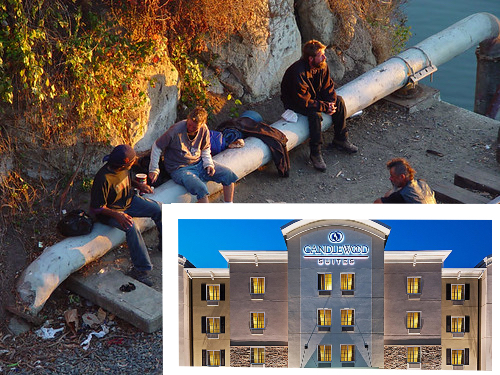
Candlewood Suites Hotel is located near many residencies and shopping centers. Parents and business owners fear the safety of the neighborhood if the city chooses to convert the hotel into a shelter.
Williamson County is seeking legal measures to stop the City of Austin from converting the Candlewood Suites Hotel into permanent supportive housing for the homeless. As of March 2, Williamson County commissioners’ courts have approved the San Antonio law firm Killen, Griffin & Farrimond to represent them in the case.
Austin City Council purchased the Candlewood at 10811 Pecan Park Blvd. on Feb. 4 for $9.5 million dollars as a long term project to tackle homelessness in the city. Per the council’s recommendation of action report and Strategic Direction 2023, the issue of homelessness has been identified as the council’s top priority.
“This housing saves lives,” council member Greg Casar said. “It will help us get hundreds of people out of tents and into housing. We all have to pull together as a city to address homelessness, and that’s why we’ve purchased hotels in four districts now, including my own. These hotels will not only be homes for people, but will also provide services like job aid, health care, mental health resources and more. And it’s only possible because of the transformative budget we passed last year.”
This effort to end homelessness has not been widely accepted. Williamson County opposes the purchase due to claims that they were not informed about the project nor how the city plans to address any potential impacts. And even before the purchase was completed, there was backlash from the community as well.
“I just don’t think this is a great hotel. It’s too close to everybody. Too close to home. A lot of people are retired here. A lot of children live here and it’s a school area. It’s going to scare a lot of my customers. They already tell me they’re not coming because of the homeless. I have a lot of older guests coming to my restaurant. They already broke into my restaurant and they sleep on my patio,” Freda Chen, Owner of Freda’s Seafood Grille, said.
The potential purchase caused much protest against the idea among local residents, shop owners and customers, as it’s located near neighborhoods, another hotel, Lakeline Mall and multiple shops.
Yet their opposition isn’t based on facts, Assistant Professor & Director of Social Work at St. Edward’s University Laurie C. Heffron said.
“I worry that some of the opposition to the City Council’s decision is misguided and serves to further entrench the fear of, and stigma against people who are without shelter,” Heffron said.
“Even more dangerous is the way this fear and stigma promotes the assumption and stereotype that those experiencing homelessness are dangerous and violent. Research evidence dispels this harmful myth and rejects the false connection between homelessness and criminality or violent behavior.”
Despite fear being based on stereotypes, the City of Austin has disclosed the plans for the success of this conversion of the hotel into permanent supportive housing. In the City of Austin recommendations report, they reassure that the homeless will receive the services needed. They also reassure residents that their safety is being taken care of.
“The property will provide housing and support services to those experiencing homelessness. The property’s location decreases the concentration of poverty, is close to retail services, and is proximate to a light rail station,” said the City of Austin. “Also, additional perimeter fencing is expected to be installed to provide a buffer between multifamily and single-family use.”
Other protestors opposed the purchase due to the cost. Many believed that $9.5 million dollars could have been put to better use, or at least would have preferred that the City Council purchase a cheaper hotel, according to CBS Austin.
“The question of what response will be most effective in terms of cost and outcomes is important. And yet, given the endless variety of potential options available to the city, it may take years to analyze, weigh the costs and benefits and reach consensus on the best solution,” Heffron said. “And in the meantime, while a team of folks crunch numbers, community members go without one of the most basic, important and internally-recognized human rights: the right to adequate housing, and in turn, increased suffering, exacerbated health conditions and further criminalization of those experiencing homelessness.”
The City of Austin is taking firm action to give the homeless another chance by giving them a place they can call home in a city that is getting more expensive as time passes.
“These narratives and myths about homelessness also fail to recognize the systems, dynamics, policies and histories that have resulted in our overall lack of affordable housing, inadequate health care coverage, insufficient mental health services and inaccessible treatment for substance abuse. Instead, they falsely and dangerously focus our attention and our blame on the individual experiencing homelessness, not the complex set of factors that resulted in a failure to adequately house members of our community,” Heffron said.
The Candlewood property is expected to provide approximately 80 units of permanent supportive housing (PSH) upon completion, according to a memo from The City of Austin. Funding for this project comes from the 6.5 million dollars diverted from the Austin Police Department.

Hey y'all! My name is Gracie Watt and I am a junior majoring in communication with a focus in journalism. I'm proud to be the Photo Editor for Hilltop...


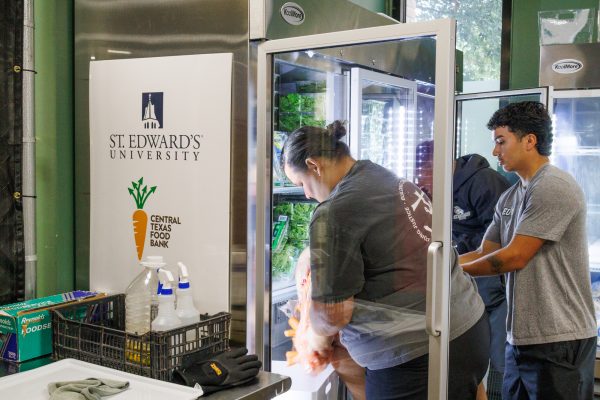
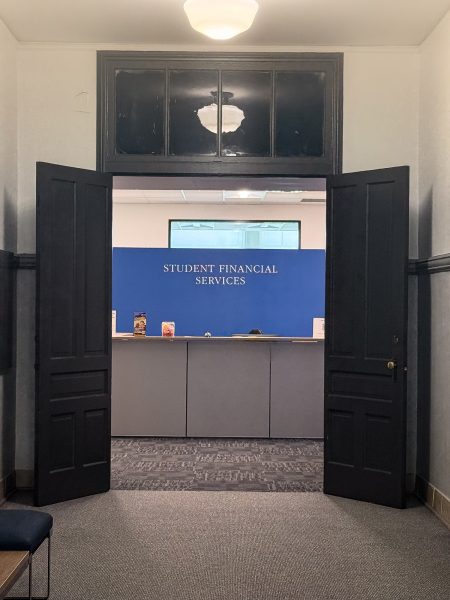
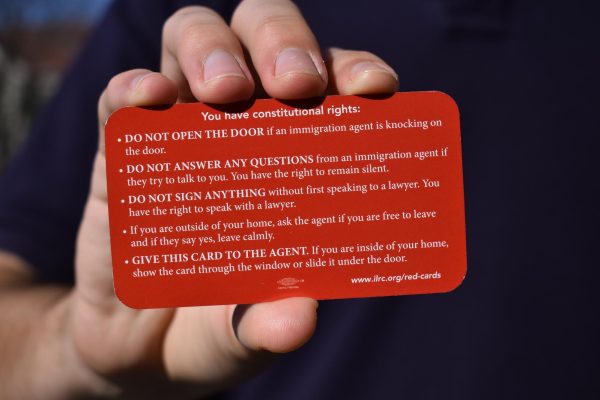
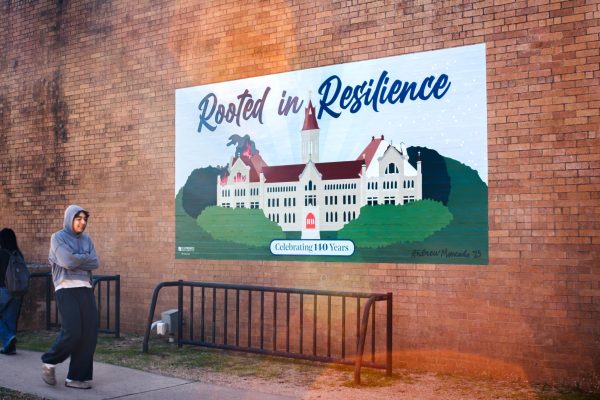






Judy Monroe • Mar 21, 2021 at 3:52 pm
I am so glad Austin made this purchase
I am concerned about the homeless with pets. This is only family some of these people have and I hope Austin can make arrangements to house the homeless with their pets.